Graham Reid | | 3 min read
Black Man in a White World
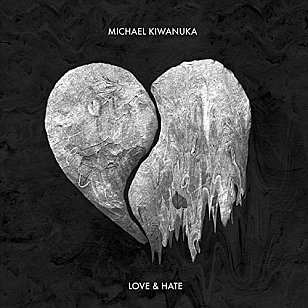
Although this quite outstanding album invokes the spirits of gospel, blues, Motown and Otis Redding, touches of soul-funk and much more, there are some fundamental points of difference.
Notably in the overt Marvin Gaye tropes which this Londoner born of Ugandan parents adopts and adapts.
But more of that soon . . .
His debut album Home Again of 2012 introduced his undeniable talent — although there were a few Thomases and naysayers — and Elsewhere concluded in its favourable review: “This is more impressive for being so lowkey, intimate and subtle . . . his time is gonna come. Sooner rather than later”.
Love & Hate must be his time come.
But among the many interesting features of his amalgam of influences (to emerge as his own man) is this: He open this with a courageously ambitious, 10 minute Cold Little Heart in which his vocals don't enter for the first half.
In fact if there's a reference point at all for those first five minutes it's more likely to be ambient Pink Floyd/David Gilmour coloured by Kiwanuka's keening and airborne guitar and the leisurely pace.
When he does enter the tempo changes, he yearns and aches to reveal the expected “cold little heart” isn't that of a former lover but himself: “I can't stand myself”. And that guitar part now sears like a laser into a hurting soul.
Right from the start Kiwanuka presents soul music, and a bleeding soul at that.
The follow-up is a handclap, semi-funk piece Black Man in White World which becomes increasingly closer to both the ache of old blues and the ascending gospel spirit as it plays out (and somewhere in there is late Sixties Gil Scott-Heron). He looks beyond the present to observe, “I feel like I been here before, I feel that knocking on my door . . . and I've lost everything I had, and I'm not angry and I'm not mad, I''m a black man in white world”.
This -- given his burned-soul delivery morphing into classic Marvin Gaye percussion and redemptive strings -- is deep stuff.
And he alludes to it again on the quieter, patient but sad Father's Child near the end where he addresses the search for hope, and the gospel pulse returns for a moment of elevating beauty . . . if the strings are unnecessarily obvious.
He pulls himself up after a relationship (“I'm a man who belongs alone” on Fallen when the former lover tries to return) and gets immersed in the minimalist blues-but-urban One More Night where he reaches through past and present (black) experiences in a way which is referenced, real, relevant and yet oddly enjoyable despite the seriousness he effects.
As a ballad singer he can really cut it (the spare and astutely short I'll Never Love).
And right at the end is The Final Frame in which again reveals his weaknesses: In broken phrases he sings: “I/said/I wanted to/do all I can/to be a good man/but the scene /I/ fell into/ took me away, what can I say/ it's the times/I'm/living through . . .”
Yes, that sounds like special pleading, but the spacing is crucial and he conveys weary and regretful hurt . . . and some Jeff Beck/balladic Jimi guitar pierces through as coda.
Across these 55 minutes the Marvin Gaye references are easy to make (Place I Belong, and most obviously on the title track almost invites you to sing “make me wanna holler”).
But here's the fundamental difference.
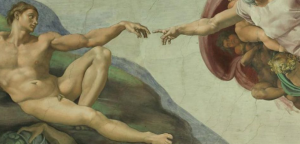 Marvin at his peak with What's Going On
to Let's Get It On at the dawn of the Seventies – which Kiwanuka
takes as his starting point – spoke of the universal, even when
addressing the personal. And quite often just went straight to eye-of-God social observation, then later merged of sex and faith.
Marvin at his peak with What's Going On
to Let's Get It On at the dawn of the Seventies – which Kiwanuka
takes as his starting point – spoke of the universal, even when
addressing the personal. And quite often just went straight to eye-of-God social observation, then later merged of sex and faith.
For the most part – Black Man an obvious exception – Kiwanuka keeps these stories and songs much closer to himself, he has the emotional grasp but as yet not the spiritual reach.
However he gets close enough for that near-touch – as on Michelangelo's Sistine ceiling – but God and Man in his largely earth-bound world remain eternally separated.
And that's the key. And the ache.
This is an extraordinary album both for what it is . . . and what it is not.
It's unlikely that -- with patience and time -- you'll hear anything like it this year, because it is a profound album beyond pop culture (and obliged to exist amidst over-hyped ordinariness) which is not going to be defined by a time and place.
And that is where it is perhaps most like classic Marvin, Otis, Aretha and, yes maybe, even Pink Floyd/Hendrix.
The final notes are on piano.
Love & Hate really does feel beyond time and place.

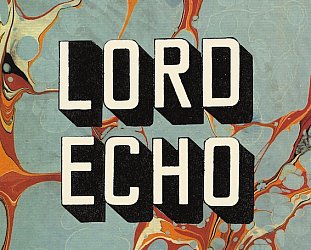

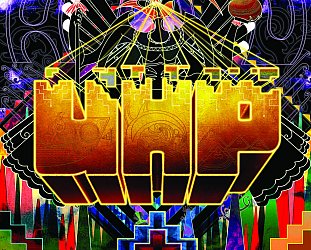
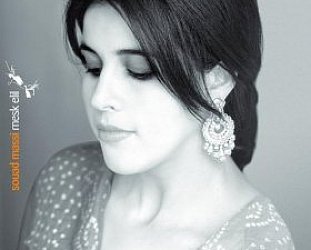
post a comment